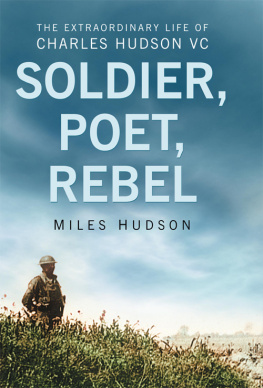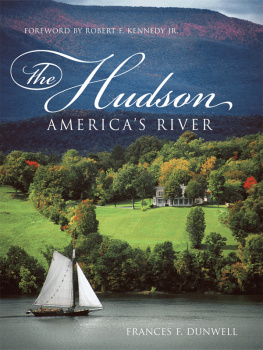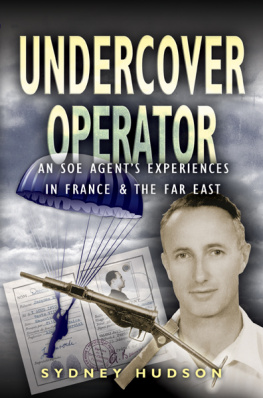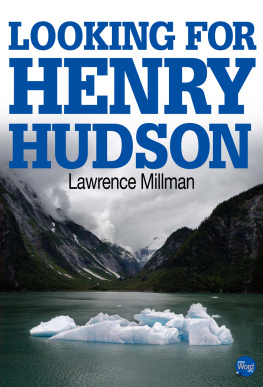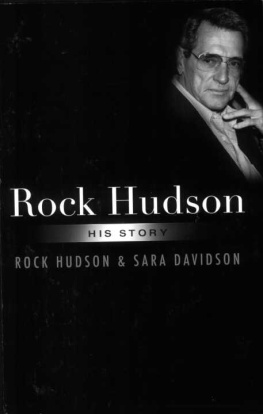THE EXTRAORDINARY LIFE OF
CHARLES HUDSON VC
SOLDIER, POET, REBEL
THE EXTRAORDINARY LIFE OF
CHARLES HUDSON VC
SOLDIER, POET, REBEL
M ILES H UDSON
THE HISTORY PRESS
First published in 2007
The History Press
The Mill, Brimscombe Port
Stroud, Gloucestershire, GL 5 2 QG
www.thehistorypress.co.uk
This ebook edition first published in 2011
All rights reserved
Miles Hudson, 2011
The right of Miles Hudson, to be identified as the Author of this work has been asserted in accordance with the Copyrights, Designs and Patents Act 1988.
This ebook is copyright material and must not be copied, reproduced, transferred, distributed, leased, licensed or publicly performed or used in any way except as specifically permitted in writing by the publishers, as allowed under the terms and conditions under which it was purchased or as strictly permitted by applicable copyright law. Any unauthorised distribution or use of this text may be a direct infringement of the authors and publishers rights, and those responsible may be liable in law accordingly.
EPUB ISBN 978 0 7524 6967 6
MOBI ISBN 978 0 7524 6968 3
Original typesetting by The History Press
Contents
Acknowledgements
This book is based primarily on Charles Hudsons own very full 720-page journal which he wrote after his final retirement. His poems, none of which were published during his lifetime, were also of primary importance in assessing his personality and character. Secondary and most valuable sources were his letters to his sister in extreme youth, from the trenches during the First World War and from the ill-fated intervention in Russia. These were made available to me by my cousins, Roger and Patrick Crowley, who also helped in other ways.
The excerpts from Vera Brittain are included by permission of Mark Bostridge and Timothy Brittain-Catlin, Literary Executors of the Vera Brittain Estate, 1970.
I was also helped by the biography, Vera Brittain: A Life, by Paul Berry and Mark Bostridge (London, Chatto & Windus, 1996).
Sir John Stanier and my son Mark both read the manuscript assiduously and made many useful comments. Sir John Graham assisted me with his knowledge as a former ambassador to Iraq. Peter Hewlett-Smith helped with place names in France and Belgium. My cousin John Hudson and Major Oliver Hackett of the Sherwood Foresters Regimental Headquarters have also been very helpful. My secretary Vikki Tate typed the various drafts with her usual assiduity and good humour
Any errors are, of course, entirely mine.
Miles Hudson
2007
Authors Introduction
It is difficult for a devoted son to write a biography of his father without lurching into sycophancy, particularly if his father was touched by fame. Nevertheless the book will attempt to be objective. Charles Hudsons decorations and other achievements, recorded at Appendix A, were extraordinary. Whatever else he was or was not, he was certainly a very brave man. This book will examine details of his courageous acts not only in war. It will try to establish his motivation in the light of his experiences in youth, his times and the society in which he was brought up.
Further, against the background of Hudsons life, the book will investigate the meaning of courage that age-old virtue, almost universally accepted as such, but nevertheless full of ambiguities.
The mean point between cowardice and foolhardiness? (Aristotle) The absence or overcoming of fear?
A capital of willpower which is run down as it is used but is slow to build up again? (Lord Moran, Anatomy of Courage)
Fear of letting down comrades or of being seen to do so?
And so on. There are many facets to courage physical and moral.
The book will look at Hudsons poetry, a very vital part of the man exemplified not only in his own poems, which appear throughout, but also in his Perfect Lines drawn from a wide range of poets and typed out in retirement on his own very old typewriter. These appear at Appendix B.
Then, Hudson the rebel, of which there are many examples: from deliberately failing his exam at Sandhurst, to constantly disobeying orders in war. His infuriating behaviour to his superiors in peacetime was probably a major factor, eventually, in him being relieved of his command of a division as was his refusal to accept what he saw as wrong-headed authority.
Finally, to what extent did these aspects of his make-up courageous soldier, poet, rebel rely on each other in creating his character? Could one of them have existed without the other two? Where did his undoubted vast sense of humour come from? His lack of bitterness? And his all-pervading modesty?
Unless otherwise stated, all quotations in the book are taken from Hudsons own journal.
ONE
Nineteen Years
In the twenty-first century it is politically incorrect to talk about class. In the nineteenth century in Britain it was a central part of life and it was talked and written about a great deal, although not always directly. Charles Hudsons family would have been described as country gentry. They had no pretensions to what was known as London society, to anything approaching aristocratic status or, indeed, to anything other than what they were. As Charles Hudson wrote in his journal: Subsequent to my first known ancestors, Adam and Eve, there is a gap in my family tree which, on my fathers side, is considerable. A great-great-grandfather (Thomas Hudson, born in 1734) made money in the City of London trading with the West Indies but later generations consistently spent more than they earned.
Indeed, his ancestors had resolutely turned their backs on trade, married people roughly of the same social status, and lived in various residences, some with small estates, almost always in the countryside. Their progeny had either stayed where they were in comfortable circumstances, joined the Army or Navy, or gone into the church. One became a barrister but did not practice and lived in Pau in France.
Another ancestor, Nathaniel Wright, had a sister who married Thomas Hudsons grandson and lived with her at Brabyns Hall, near Stockport in Cheshire. Wright raised and fitted out a regiment in 1803 and 1804 to defend his country against Napoleon, who was threatening invasion. This no doubt fine body of men luxuriated in the resounding name of the Loyal Poynton Worth and Bullock Smithy Volunteers (the Smithy presumably being the spot where they rallied to the cause). Such was Nathaniels repute that he was presented with two gold-plated cups by the Lord Viscount Warren Bulkeley, the Colonel Commandant of the Brigaded Corps of Stockport Poynton Worth etc [whatever the latter letters may mean] as a token of the Sense he Entertains of his Loyal Liberality and Activity. It was unlikely that any of this family went to university indeed the author of this book may well be one of the first members of his family to have done so. Those who joined the Army went into their county regiment; there was no question of them joining either the Guards or the Cavalry. They managed to raise enough money to buy their commissions and when this, to us now, extraordinary practice was abolished, Hudsons father, Herbert, came into considerable obloquy because he arrived as the first officer to join the regiment by examination, in the opinion of his brother officers, particularly the older ones, this innovation would result in the Army going to the dogs.
India featured very prominently in the lives of those who joined the Army, as many members of Hudsons family did. William James Hudson, Hudsons grandfather, born in 1821, became an Ensign in the 61st Regiment of Foot (later the Gloucesters) in 1842. After two years of garrison duty in Ireland his regiment was posted to India. Things were very different in those days. They sailed in five ships, the voyage to Calcutta taking over four months. William recounts in his diary that, having arrived, they marched to Cawnpore, a distance of 623 miles. It took them two months, their wives and families accompanying them sedately in carriages. They remained in Cawnpore for six months in extremely unhealthy conditions eighty soldiers died of various afflictions. They then marched a further 400 miles to a military station called Ambala. After a long series of marches and counter-marches, the regiment was heavily engaged against the Sikhs at the Battle of Chillianwalla, which was a disaster as far as the English were concerned, but the situation was retrieved three days later at the Battle of Gujerat at which the Sikhs were defeated.

